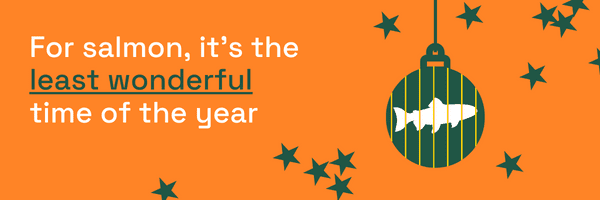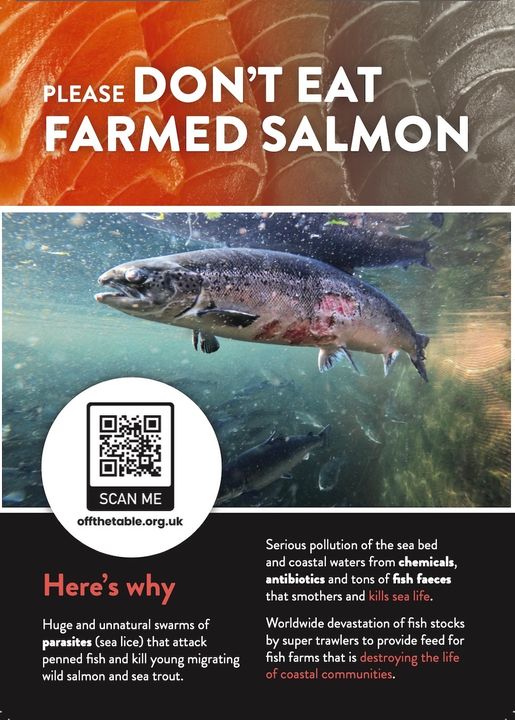
In the lead up to Christmas, over 2 million farmed salmon are likely to die prematurely each month on farms along the Scottish west coast and islands. Farmed salmon has no place on our festive menus, and certainly not on sustainable ones.

Salmon Farming: why it’s not a cause for festive cheer
Since the 1970s, global populations of wild Atlantic salmon have declined by around 70%, from 8-10 million to just 3 million today. Open-net salmon farming has been shown to be one of the causes of this decline.
As salmon farming in Scotland continues to grow exponentially it spreads potentially fatal parasitic sea lice from farmed to wild fish. The threat to wild fish is further escalated by a rise in farmed fish escapes and as a result increased likelihood of extinction from genetic dilution.
In 2021, the Scottish salmon industry produced over 200,000 annual tonnes of Atlantic salmon. By 2030 it aims to produce 400,000 tonnes per year.
While the industry looks forward to increasing revenues, the true cost of producing this volume of farmed Atlantic salmon isn’t a cause for festive cheer.
Salmon farming wreaks environmental havoc
Salmon farming is not an environmentally-friendly menu option. It wreaks havoc on the surrounding environment, has severe costs in terms of resources and carbon use and it leads to the immense suffering of millions of fish – both wild and farmed.
The unsustainable practice of open-net salmon farming is a significant cause of the dramatic decline in populations of wild Atlantic salmon and the integrity of Scotland’s coastal ecosystems.
